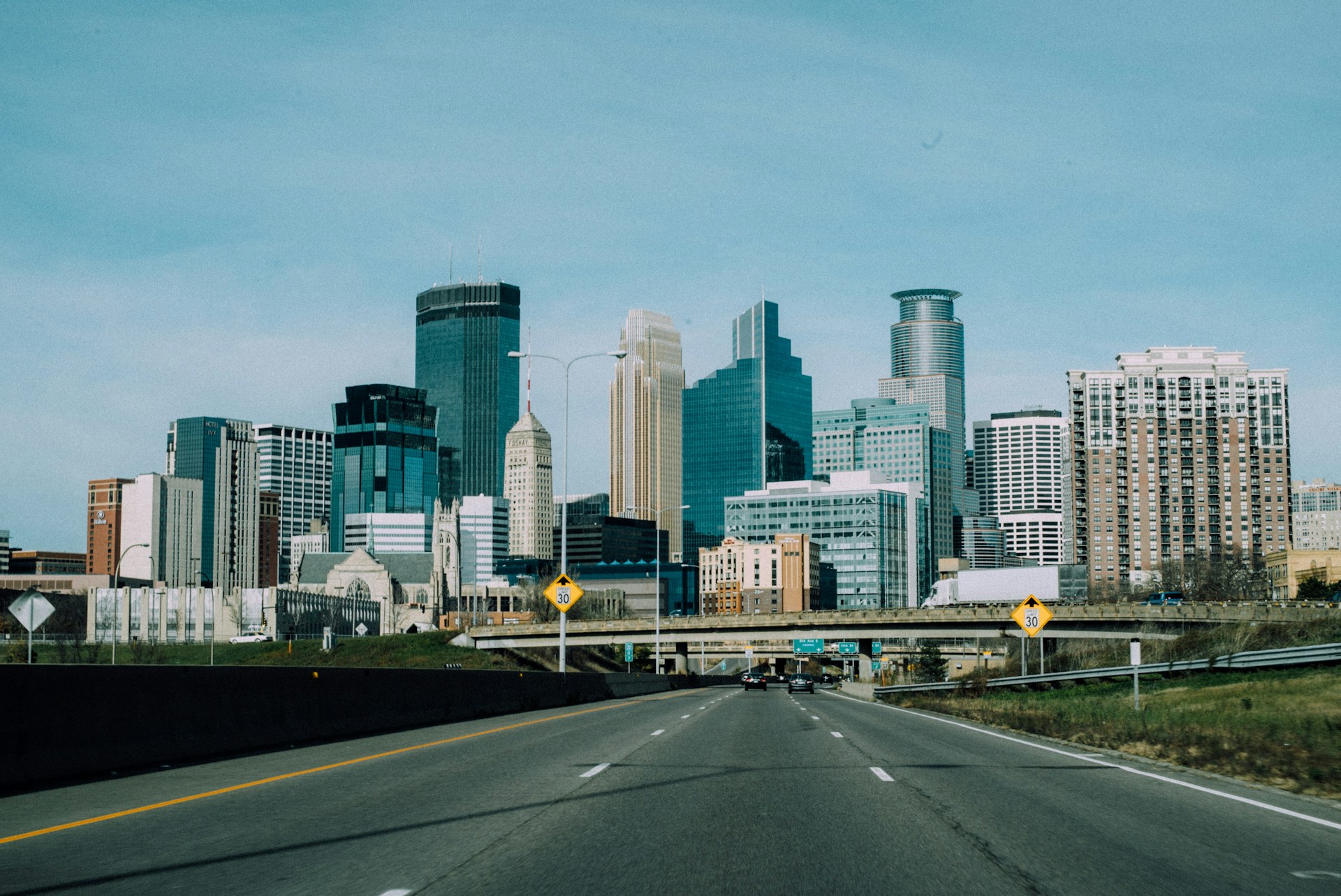- The State of Michigan issued a lease to a natural gas company called Enbridge
- Michigan issued Enbridge permission to build their Line 5 dual pipeline without any consultation with the tribe or any public input on top of the fact that there was no consideration of potential oil spills in the Great Lakes.
- Enbridge sought to expand the Line 5 pipeline, but Governor Whitmer terminated their contract.
The State of Michigan issued a lease to a natural gas company called Enbridge. The region in which the lease was dealt was sacred land for the Anishinaabe people. They originally began in the Straits of Mackinac and consider the waters from Lake Huron all the way to Lake Eerie to be sacred land. This is the area in which they practice their culture and their daily life routines and is also where they have their historic and archaeological sites.
They also rely on the fish and wildlife that is abundant around the Straits of Mackinac, which is an integral part for communities, local businesses, and tribal members. The subsistence fishing/hunting industry as well as the commercial fishing/hunting industry are an important part of keeping their economy stable.
In the 1950s, Michigan issued Enbridge permission to build their Line 5 dual pipeline. This was done without any consultation with the tribe or any public input on top of the fact that there was no consideration of potential oil spills in the Great Lakes. Fast forward to 2021, and the same company is now aspiring to create a tunnel that will store a new part of the Line 5 pipeline, which will continue to transport oil and gas through Canada. This will take away land from the tribe and give no economic benefits for the residents.
Enbridge is now trespassing due to the fact that Governor Gretchen Whitmer terminated the contract that allowed the dual pipeline to go through the Strait of Mackinac. In turn, they are taking away from the sacred land of the tribe and are instead harming the environment, causing a multitude of potential problems for the tribe.
- Enbridge’s Line 5 pipeline has spilled 33 times since 1968.
- Governor Whitmer ordered the shutdown of Line 5 by May 12, 2021.
- Enbridge has continued to operate the pipeline despite this order.
Line 5 was constructed under the Eisenhower administration in 1953. The two pipelines are 20 inches in diameter, are owned by Enbridge, and lie at the bottom of the Straits of Mackinac, extending for 645 miles across the state of Michigan. Enbridge is the third largest natural gas provider in North America, and is headquartered in Calgary, Canada.
Enbridge’s Line 5 transports about 540,000 barrels per day of light crude oil, light synthetic crude, and natural gas liquids, which is then made into propane. While Line 5 provides 65% of the propane used in the Upper Peninsula, the pipelines have spilled 33 times, releasing at least 1.1 million gallons of oil in total since 1968.
The Great Lakes provide 20 percent of the planet’s freshwater, and since 1836, five Native American tribes that make up the Chippewa Ottawa Resource Authority have had fishing rights to the waters of the upper Great Lakes, including the strait that Line 5 passes through. Michigan officials have proposed to replace the two pipelines by implanting a 500 million dollar tunnel in the Strait, but have received backlash from environmental groups such as Earthjustice and the Sierra Club, and even Michigan Governor Gretchen Whitmer.
The federal government signed the 1836 Treaty before Michigan was granted statehood, and if a tunnel were to be put under the Straits, or if a spill that damages a habitat were to occur, it would violate the 1836 Treaty, and would require a settlement with the Michigan Tribes.
Governor Whitmer ordered the shutdown of Line 5 by May 12, 2021, but Enbridge has refused and is now utilizing the pipelines against Michigan law. Democrats and Republicans both believe that Line 5 should be decommissioned, but Democrats have been more vocal in the issue, pushing the importance of Indigenous communities and the rights that they hold. With the backlash from the tunnel proposal, there is a need for alternate solutions or legislation.
- Michigan’s Alternative Analysis in 2017 identified four viable alternatives to the Line 5 pipeline that could create up to 2,000 jobs while only slightly increasing consumer oil costs.
- The London Economics International LLC in 2018 concurred with many of the findings in Michigan’s study.
- Any one of these alternatives could limit risk to natural resources while not increasing prices to consumers by a noticeable margin.
- These alternatives also respect Indigenous claims to the land and water rights.
There are numerous alternatives to the Line 5 pipeline. In 2017, the State of Michigan conducted an Alternative Analysis, created a report in May of 2017. They studied six alternatives, including constructing new pipelines that did not cross open bodies of water, utilizing existing pipeline that does not cross open water, using alternate transportation methods - trucks, trains, barges - to avoid the open water, replacing the existing Straits pipeline with the best possible design and technology, maintain the existing pipeline with repairs as needed, or eliminate all transportation of petroleum products and natural gas liquids (NGLs) through the Straits of Mackinac segment of Line 5.
All of these alternatives were found to be effective with the exception of utilizing existing pipelines and using alternative transportation methods. This leaves leaders with four viable options. Additionally, this report finds that decommissioning Line 5 would create 2000 near term jobs, and would only increase the cost to consumers by about $0.2 - $0.4 per barrel.
The London Economics International LLC (LEI) was also contracted to research alternatives to Line 5 in 2018. Their research found that utilizing trucks to haul propane to the Upper Peninsula was efficient. The price increase was only around $.05 per gallon, a price increase that would be lost in the volatility of regular fuel prices. Transportation of crude oil is slightly more problematic. LEI found that it is feasible to use trucking for oil transport, but it could increase oil prices by as much as $1.31 per barrel. However, they believe this cost could be absorbed by refineries.
Finally the study looked at how decommissioning Line 5 could impact refineries in the area. Between the excess production from other lines and the supplemental oil brought in by trucking, LEI found that decommissioning Line 5 should have minimal effects on the Toledo and Detroit refineries. Any additional costs to consumers would be small enough to be lost in the volatility of prices.
What we can gather from these two studies is that we have viable options to replace Line 5. Any one of these alternatives could limit risk to natural resources while not increasing prices to consumers by a noticeable margin.These alternatives also respect



.jpg)
.jpg)
.jpg)
.jpg)






.svg)



.svg)






